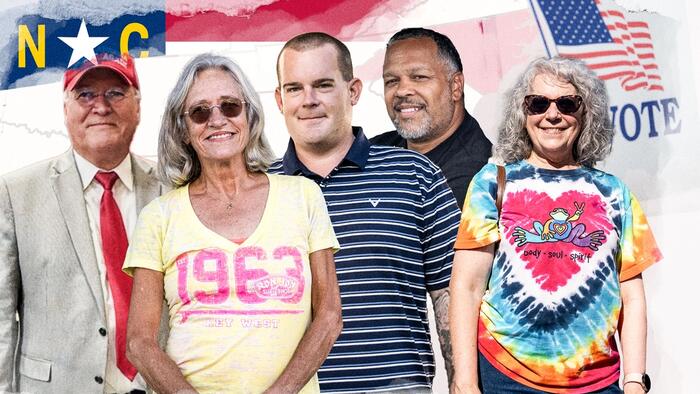In a thought-provoking article by Arjun Singh from The Epoch Times, the political sentiments of North Carolinians as they prepare for the upcoming presidential election are explored through the lens of personal stories and pressing socio-economic issues. Edwin Robasco, a retiree who previously backed Democrats, now supports former President Donald Trump, attributing his shift to concerns over illegal immigration and its impact on community resources. Robasco’s perspective reflects a broader concern echoed throughout North Carolina, highlighting how immigration and economic stability are pivotal issues for voters in this crucial state, which holds 15 electoral votes.
The article emphasizes that the economy and immigration are at the forefront of voters’ minds, irrespective of their political affiliation. State Senator W. Ted Alexander, a Republican, notes that both issues resonate deeply with North Carolinians, as they express anxiety surrounding national security and inflation rates that impact job security. Al Smith, a local auto body shop owner, articulates the anxiety many feel about how illegal immigration might be driving down wages and altering the employment landscape. His statements illustrate a frustration with the perceived impacts of immigration on American workers, underscoring a sentiment that is fueling support for Trump’s tough stances on border security.
Conversely, supporters of Vice President Kamala Harris also share apprehensions about illegal immigration, illustrating the complexity of the issue. Camila and Lyndon White, while backing Harris, acknowledge their reliance on immigrant labor in their community, showing the duality of fearing illegal immigration while simultaneously recognizing its necessity. This reflects a collective understanding among voters that while immigration is an issue of concern, local economies often depend on immigrant contributions. Such nuanced perspectives reveal the multi-dimensional nature of voter priorities in North Carolina, where economic and immigration issues intertwine.
Economic malaise is felt across the spectrum, with both Trump and Harris supporters voicing dissatisfaction with the current administration’s handling of inflation and rising costs. Owners of small businesses like Logan Prince highlight the struggles they face in maintaining profitability amid soaring fuel prices and interest rates. This sentiment is echoed by Rev. Rick Baker, who observes the financial strain on his congregation and the broader community. Even Harris supporters express their frustrations over stagnating economic conditions, suggesting that the dissatisfaction with economic performance is palpable across the political divide.
Abortion rights also emerge as a significant theme in the conversations captured in the article. The aftermath of the Supreme Court’s overturning of Roe v. Wade has kindled passionate responses, particularly in North Carolina, where restrictive abortion laws have been enacted. Many voters express a desire for reproductive rights, with individuals like Jill Radzcwiz and Camila White voicing concerns for women’s autonomy and health care decisions. Their staunch support for Harris due to her position on abortion highlights how these rights are now influencing electoral choices, particularly among women and those aware of the implications for future generations.
In summary, the content presents a vivid portrait of North Carolina voters grappling with crucial issues of immigration, the economy, and reproductive rights as they approach the presidential election. The narratives shared reflect a significant shift in some voters’ political alignment while also revealing the contradictions and complexities within their beliefs. The interplay of local and national policy concerns, economic hardships, and social issues serves as a microcosm of the challenges facing the nation, making North Carolina a pivotal battleground that will likely shape the outcome of the election. Through these personal accounts, the article reveals that understanding voter motivations requires an acknowledgment of their multifaceted concerns—an approach that can provide insights into the broader electoral landscape.

